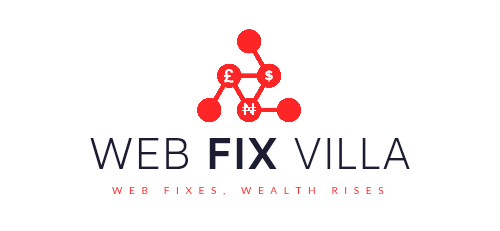
Introduction
Imagine confidently applying for a loan, only to face an unexpected rejection with no clear reason behind it. This happens to many Nigerians regularly, and often the root cause is something simple yet crucial—your credit score. But what exactly is a credit score, how do banks and loan apps evaluate it, and how can you improve yours to increase your chances of securing that loan? Let’s break it down!
What is a Credit Score and Why Does It Matter?
A credit score is a number that reflects your creditworthiness, typically ranging from 300 to 850. In Nigeria, credit scores are monitored by credit bureaus such as the Credit Bureau Association of Nigeria (CBAN), which oversees agencies like:
- CRC Credit Bureau
- First Central Credit Bureau
- CreditRegistry
This score is vital because it helps lenders assess the risk of lending to you. A higher credit score signals a lower risk to lenders, improving your chances of loan approval with more favorable terms, such as lower interest rates.
How Nigerian Banks and Loan Apps Evaluate Your Credit Score
- Credit Bureaus and Reports
When you apply for a loan, banks and fintech loan apps like Carbon, FairMoney, Branch, and Renmoney request your credit report from a recognized credit bureau. This report typically includes:
- Your past loan repayment history
- Whether you paid on time or missed payments
- The total number of outstanding debts you have
- The frequency of your loan applications
- Bank Statement & Transaction Scrutiny
Many Nigerian lenders also analyze your bank statement to assess your financial behavior. Using AI-driven tools, they:
- Track your income and expenses
- Look for signs of overspending
- Check for consistent deductions related to previous loans
If your account regularly shows a negative balance or includes habits like frequent gambling or impulsive spending, your loan application might be denied.
- BVN (Bank Verification Number) Monitoring
Your BVN is a unique identifier that links your financial activities across different banks. Lenders use it to:
- Identify loan defaulters
- Detect fraudulent actions
- Assess your overall financial integrity
- Loan App Blacklists
If you fail to repay a loan, your name could end up on a blacklist shared across multiple loan platforms. Many lenders exchange borrower data, so if you default with one provider, others may reject your future applications.
How to Improve Your Credit Score and Increase Your Chances of Loan Approval
- Pay Your Bills on Time
Late payments are one of the most damaging factors for your credit score. To build a good credit history, ensure you settle any loans or bills on or before the due date. - Reduce Your Outstanding Debts
Too many unpaid loans can significantly lower your score. Focus on clearing your existing debts before seeking new loans. - Avoid Excessive Borrowing
Applying for multiple loans at once may signal financial distress, making lenders hesitant to approve your application. Borrow only when necessary. - Monitor Your Credit Report Regularly
It’s important to regularly check your credit report through bureaus like CRC Credit Bureau or First Central. This helps ensure all the details are accurate and gives you the chance to address any errors or discrepancies. - Maintain a Healthy Bank Statement
Ensure a steady income flow, cut down on non-essential expenses, and avoid overdrafts. Loan apps use this data to evaluate how responsible you are with managing money. - Build a Good Relationship with Your Bank
If you have a salary account, cultivating positive financial habits with your bank could result in pre-approved loan offers, making it easier to access loans in the future.
Real-World Example: How Uche Improved His Credit Score
Uche, an entrepreneur based in Lagos, faced rejection from multiple loan apps due to a poor credit score. After reviewing his financial situation, he realized:
- He still had two unpaid micro-loans.
- His bank statement showed frequent betting transactions.
- He had applied for loans from four different lenders within the same month.
To improve his credit score, Uche took these steps:
✅ Cleared his outstanding debts within three months.
✅ Reduced betting habits and curbed unnecessary spending.
✅ Stopped applying for loans in quick succession.
✅ Used a loan app that reported his repayments to credit bureaus.
In just six months, Uche’s credit score improved, and he was approved for a ₦500,000 business loan from his bank!
Final Thoughts
Your credit score is essentially your financial reputation. The higher it is, the easier it will be to secure loans with favorable interest rates and terms. By understanding how Nigerian banks and loan apps assess your creditworthiness and taking the right steps to improve your score, you can unlock better financial opportunities.
Have you checked your credit score recently? Share your experience with us in the comments below!












